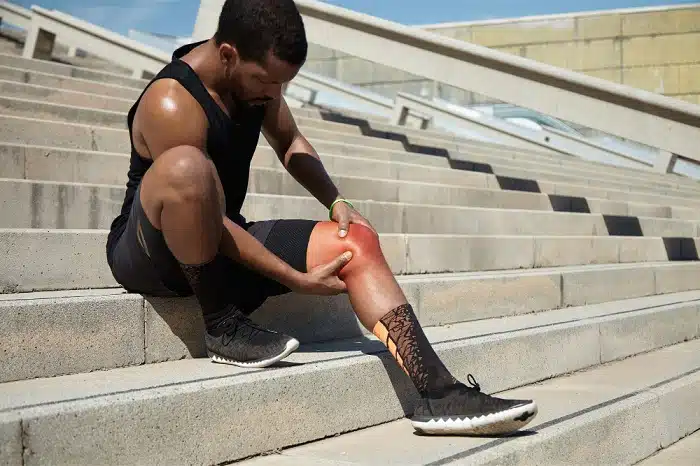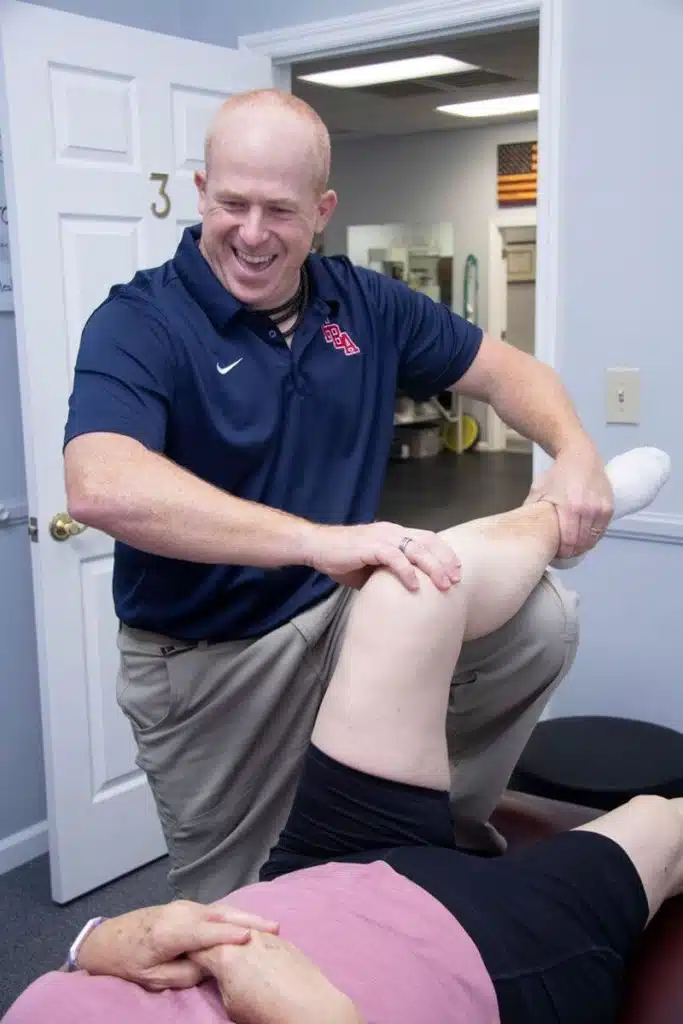
The anterior cruciate ligament (ACL) is a large and very important structural component of the knee and it provides so much stability that you would think that the obvious answer after rupturing this ligament would be to surgically operate on it, but this isn’t the case for everyone. In this article, I would like to outline what ACL is, what it does, and whether or not surgery is the best option after rupturing it.
The ACL is one of the strongest ligaments in the entire body. It is a thick piece of connective tissue connecting your tibia and your femur. The primary job of the ACL is to prevent excess motion of the knee joint itself, specifically the forward movement of the tibia on the femur. There are other ligaments such as the MCL, LCL, and PCL which help keep the knee from moving in other directions. The knee primarily only bends in one way with minimal other movements allowed from side to side.
These ligaments help keep the knee from moving in these other directions which provides the knee stability and allows you to impart force through the knee and foot for our everyday activities such as walking, running, jumping, and everything in between. Without these ligaments, the knee would be allowed to twist and grind around on soft tissues such as the meniscus inside the knee, another important structural component.
The knee can also move and impart pressures on the cartilage on the tibia or femur in ways that they were not designed to do. All this simply means that as stability in the knee goes down, other negative consequences can increase.
When you tear your ACL, it will likely not heal on its own and you are left with two options; undergo surgery to replace the ACL, or do nothing and see if you will be able to go about your life without the ACL. Surgery to replace the ACL is done in a number of ways. This includes taking a graft from your hamstring tendon (or some other muscle tendons), taking the middle third of your patellar ligament, or using a cadaver’s tendon or ligament to replace your own ruptured ligament.

These surgeries are very common, generally have good outcomes, and are considered low-risk surgery, but any and all surgeries come with their own associated risks.
Adverse outcomes such as infection can cause you much more grief than just knee pain. Surgeries are also dependent on the skill of the surgeon. If the surgeon does not perform the operation correctly or makes a mistake then you can be in a worse position than you currently are in.
Given the risks of surgery, many people opt not to have the procedure done at all and just live their life with no ACL. You may be asking why considering how important the ACL is to the knee, but research shows that surgery is not always the best option. Without the ACL, it is true that your knee will be more unstable. It will have slightly more accessory motion and likely not feel as stable as it was before, but in regards to long-term outcomes, there isn’t a large difference for many people.
Incidence rates of knee arthritis and meniscus tears are not extremely different between those who have surgery and those who don’t, and both groups of people typically report similar levels of functional ability. There is some evidence stating that those who have the surgery have lower rates of meniscus tears down the road, but again the functional capacity of both groups tends to be about the same.

Should you have surgery considering all of this? This is the question you and your physician will have to discuss. You are more likely to benefit from surgery if you are younger, participating in sports or generally active, are looking for the absolute best long-term outcomes, are willing to take on the risk of surgery, and feel that you would be bothered by a feeling of instability in the knee.
You might be less inclined to undergo the surgery if you are older, have tried conservative care with poor outcomes, are not very active in general, or are not willing to take on the risks of surgery. No matter what you decide, it is always important to seek care from your local physical therapist or chiropractor to help guide you along your recovery journey and help you make the decision of whether or not surgery is the best fit for you.

8029 Ray Mears Blvd, Suite 300
Knoxville, TN
37919
Phone: 865-337-5574
Monday
7am-12pm & 1pm-6pm
Tuesday
7am-12pm & 1pm-4pm
Wednesday
7am-1pm
Thursday
7am-12pm & 1pm-6pm
Friday
7am-12pm & 1pm-4pm
Saturday & Sunday
Closed